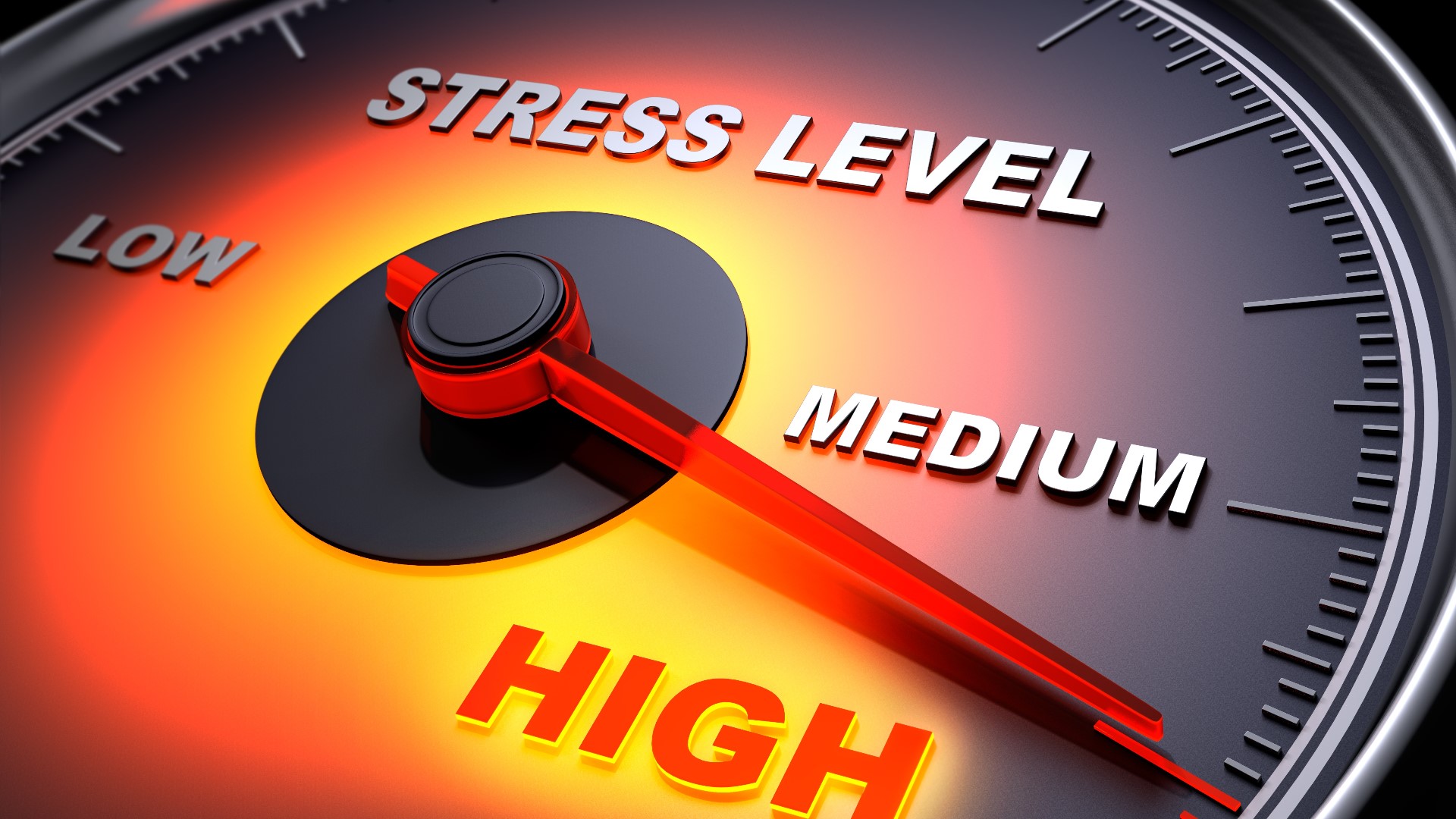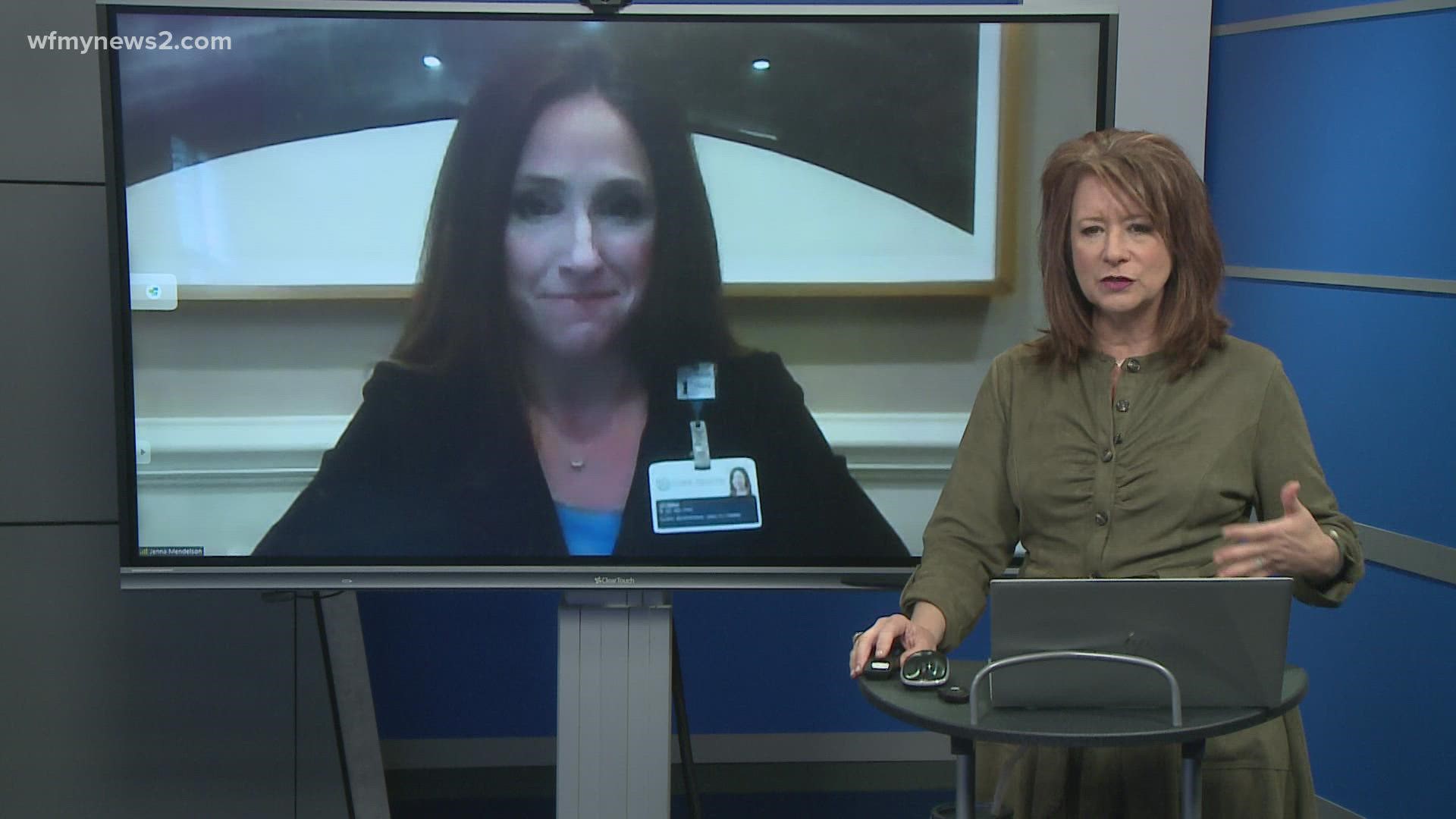GREENSBORO, N.C. — Many people experience stress and anxiety at some point in their life. A stress response can even help you overcome a challenge. But too much stress for a long period of time can turn into anxiety and make you feel overwhelmed.
Dr. Jenna Mendelson is a licensed clinical psychologist with Cone Health's Lebauer Behavioral Medicine. She answered some questions about stress on 2 Your Well-Being.
What is stress and what causes it?
Dr. Mendelson said in the current cultural context, stress has a lot of negative connotations, but the definition is actually pretty neutral. Stress is any environmental or physical pressure that elicits a response from an organism.
She said stress has been necessary and helpful for human adaptation and survival. Some degree of stress is healthy and can help you grow as a person.
"Some degree of stress is healthy and can help us grow as people and achieve our personal goals," said Dr. Mendelson.
Stress can become problematic when it keeps on going at elevated levels for an extended period of time, according to Dr. Mendelson.
Some signs that stress that is negatively impacting your health include:
- Physiological symptoms:
- General muscular aches and pains
- Chest pains or feeling like your heart is racing
- Feeling exhausted all the time or having trouble sleeping
- Headaches
- Dizziness
- Shaking
- High blood pressure
- Muscle tension or jaw clenching
- Stomach and digestive problems
- Emotional symptoms:
- Being generally more emotional (quicker to get angry or become tearful)
- Feeling overwhelmed or on edge
- Having trouble keeping track of things or remembering things you need to
- Having trouble focusing
- Struggling to get things done
What are some steps to reduce and manage stress?
- Care for your body and stay active. Thirty minutes a day, five days a week of exercise is generally recommended, but starting any kind of exercise regiment can help you feel better.
- Make time for yourself.
- Find support: find a counselor, join a support group, take a class, make friends or deepen the relationships you have.
- Focus on what matters. Learn to say “no” to activities that are not priorities. Create a list of important activities and use it to help you choose how to spend your time.
- Realign your personal goals according to what matters to you.
- Avoid risky behaviors like substance abuse. But even things like caffeine consumption can play a negative role in your stress management.
How can parents help their kids manage stress?
Children experience many of the same symptoms of stress as adults, but Dr. Mendleson said kids may not know that they're experiencing stress and may not have the words to express their feelings.
You might notice abrupt behavioral changes, like your child acting grouchy, or even bursts of anger. Stressed children may also avoid doing things they used to enjoy or usually do.
Dr. Mendleson said children who are able to cope with stress more effectively:
- Get regular exercise
- Have a regular connection with some kind of social support
- Positive relationships with their families
- Some kind of access to entertainment (yes, including video games, but also more active entertainment)
When to get help
"A major red flag that stress may have gotten to be too much is if you start having thoughts like 'it wouldn't be so bad if I didn't wake up tomorrow,'" said Dr. Mendleson. "It's not quite suicidal ideation, but you're feeling like it would be pretty good if the situation ended. That is a good sign that you are dealing with too much stress, that the situation has become too much, and it's time to get help."
If stress is leading you to suicidal thoughts or substance abuse, you can call Cone Health’s 24-hour, toll-free Behavioral Health helpline for immediate assistance at 336-832-9700 or 1-800-711-2635.


